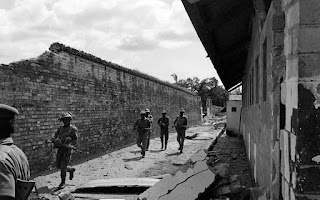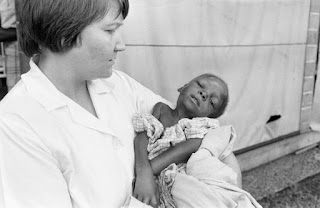BOOK REVIEW: Biafra: Okey Anueyiagu’s Horrors Of war

BY PATRICK DELE COLE (FILES) This file photo taken on November 16, 1967 shows Nigerian federal army soldiers patrolling near the destroyed prison of Calabar, the oldest port on the West African coast, after the federal troops took the city from the Biafran rebellion, during the Biafran war .<br />Fifty years ago, the Igbo people of southeast Nigeria seceded, declaring an independent Republic of Biafra and sparking a brutal civil war that left about one million people dead. / AFP PHOTO / Colin HAYNES Dr. Okey Anueyiagu has written a personal history about his experiences as a young fellow, what happened to him in Kano during the pogrom , and how as a thirteen-year-old, he joined the Biafran Army . He speaks with the raw innocence of a 13-year-old dealing with issues of life and death, dealing with issues that even for a much older person could have been traumatic and difficult to comprehend. But he deals with it well because he tells a story on what life in pre-1966 Nigeria wa...




